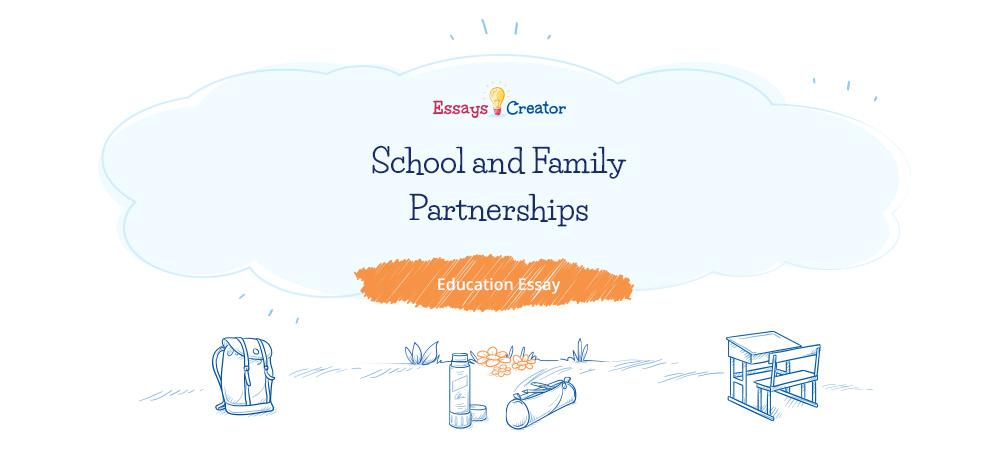
School and Family Partnerships Free Essay
Special needs education has a significant impact on the development of children with special needs. However, the teachers alone cannot effectively manage the education of these children. The participation of both teachers and parents in the development of special needs education programs ensures that the education needs of disabled children are met at all times. Furthermore, the home setting is critical since it is the environment where a child with special needs feels more comfortable.
Through working with disabled children, I have realized that parents of such children must take active participation in the education of the latter. However, since this is not possible during the day when the children are in school, the home environment must be a characteristic learning environment as well (Dash, 2006). Children with special needs have different learning capacities and attributes; some learn best in their home environment, while others can equally learn in school or home environment. The inclusion of parents in the learning process creates a comprehensive learning environment that ensures that teachers’ work is not limited to schools but also extends to the home environment.
Order your Education Essay help today!
This facilitates the delivery of effective and meaningful education for children with special needs. More importantly, the parents are familiarized with the challenges that their children face in the school environment and together with the teachers find adequate solutions to such problems (Dash, 2006). For instance, a child with special needs may have difficulties adapting to a new learning environment. Therefore, to aid the transition, parents can take an active role in stimulating an environment that the child is familiar with; hence the child is progressively assimilated into the new learning environment. This has been one of the most effective ways in which partnerships with the child’s family can contribute toward special needs education.
Children and Adults with Special Needs Have a Fundamental Right to Live and Participate In the Same Settings and Programs
Children with special needs should not be maligned or segregated from the rest of the community in schools or at home. The same case applies to adults with special needs in workplaces. Disabled children have the same rights as those enjoyed by other children: to learn, live and participate in school, home, or communal activities. Therefore, their special needs should not be used against them; instead, they should be helped to assimilate into normal school, home, or societal routines (Dhawan, 2005). This makes the children an integral part of the community and aids in enhancing their learning, cognitive and social skills.
In addition, through active participation in normal school and social activities, disabled children can identify with their non-special needs counterparts. This creates a positive and meaningful environment for the learning and development of children with special needs. I believe that through the integration of the latter and ordinary children, literacy and cognitive development are enhanced. Furthermore, children with special needs are given the same opportunities to participate in the school curriculum and extra-curricular activities. This is essential since some children may be more talented or skilled in some areas; hence their integration with ordinary children enhances their confidence, resilience, and ability to be active members of society (Dash, 2006).
Future Role as a Child Development Professional
As a future child development professional, I will focus on the development of a comprehensive and integrated learning program for children with special needs. This will emphasize the active participation of such children’s families and the inclusion of disabled children in the curriculum and extra-curricular activities in the school environment. Children and families will benefit from my insights in that they will have exposure to educational activities without restrictions or segregation (Dhawan, 2005). This will enhance their overall development and integration into school and societal activities. Consequently, they will become fully functional members of society instead of being maligned as inadequate as a consequence of their special needs. Significantly, this will sensitize other children and adults to treat and relate to the disabled children equally without placing significant emphasis on their special needs. This will enable children with special needs to assimilate into society effortlessly, without significant dependence on their families or caretakers.

